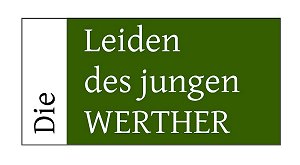The Sorrows of Young Werther (07) by J.W. von Goethe

The Sorrows of Young Werther (07)
by J.W. von Goethe
22 May 1771
That the life of man is but a dream, many a man has surmised heretofore; and I, too, am everywhere pursued by this feeling. When I consider the narrow limits within which our active and inquiring faculties are confined; when I see how all our energies are wasted in providing for mere necessities, which again have no further end than to prolong a wretched existence; and then that all our satisfaction concerning certain subjects of investigation ends in nothing better than a passive resignation, whilst we amuse ourselves painting our prison-walls with bright figures and brilliant landscapes,–when I consider all this, Wilhelm, I am silent. I examine my own being, and find there a world, but a world rather of imagination and dim desires, than of distinctness and living power. Then everything swims before my senses, and I smile and dream while pursuing my way through the world.
All learned professors and doctors are agreed that children do not comprehend the cause of their desires; but that the grown-up should wander about this earth like children, without knowing whence they come, or whither they go, influenced as little by fixed motives, but guided like them by biscuits, sugar-plums, and the rod,–this is what nobody is willing to acknowledge; and yet I think it is palpable.
I know what you will say in reply; for I am ready to admit that they are happiest, who, like children, amuse themselves with their playthings, dress and undress their dolls, and attentively watch the cupboard, where mamma has locked up her sweet things, and, when at last they get a delicious morsel, eat it greedily, and exclaim, “More!” These are certainly happy beings; but others also are objects of envy, who dignify their paltry employments, and sometimes even their passions, with pompous titles, representing them to mankind as gigantic achievements performed for their welfare and glory. But the man who humbly acknowledges the vanity of all this, who observes with what pleasure the thriving citizen converts his little garden into a paradise, and how patiently even the poor man pursues his weary way under his burden, and how all wish equally to behold the light of the sun a little longer,–yes, such a man is at peace, and creates his own world within himself; and he is also happy, because he is a man. And then, however limited his sphere, he still preserves in his bosom the sweet feeling of liberty, and knows that he can quit his prison whenever he likes.
The Sorrows of Young Werther (Die Leiden des jungen Werther) by J.W. von Goethe. Translated by R.D. Boylan.
To be continued
fleursdumal.nl magazine
More in: -Die Leiden des jungen Werther, Goethe, Johann Wolfgang von

